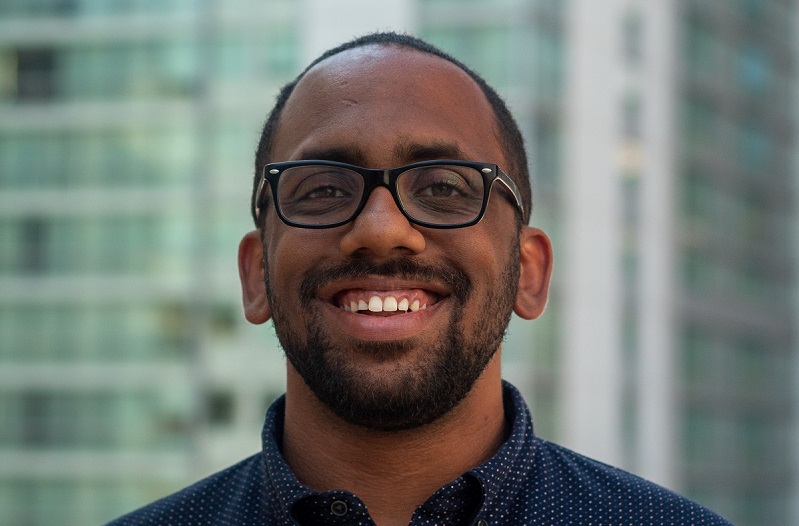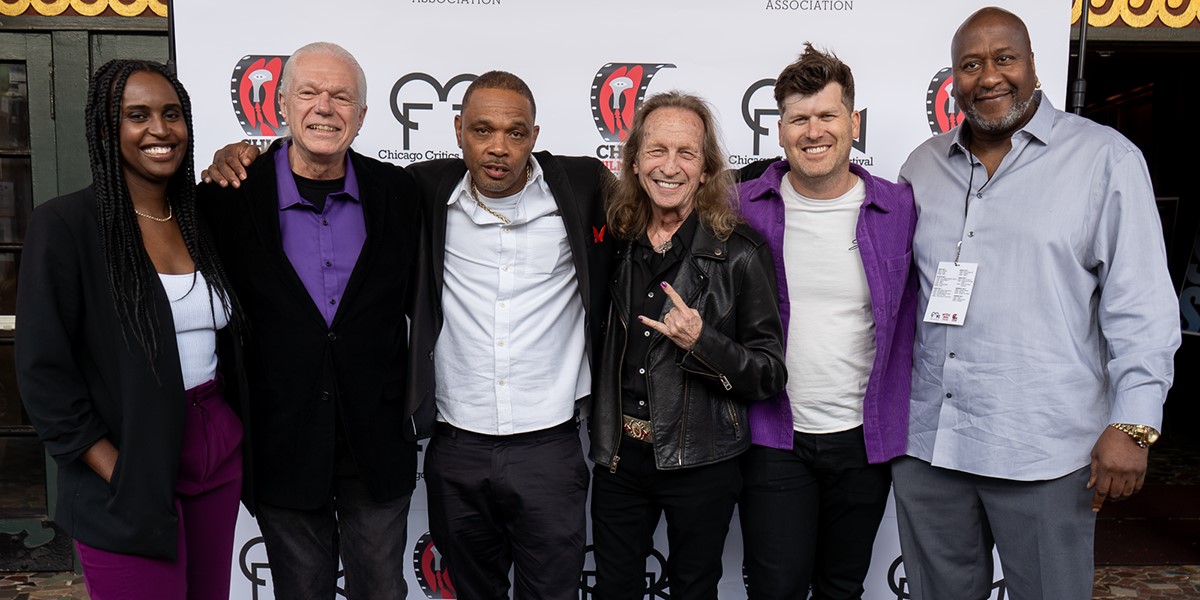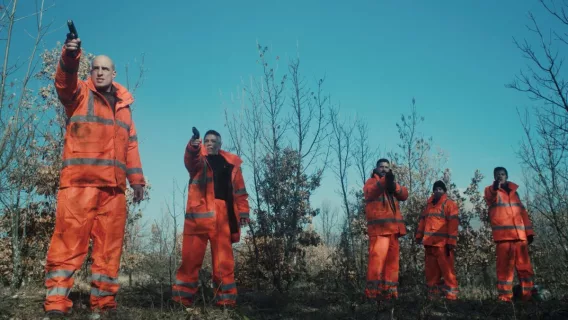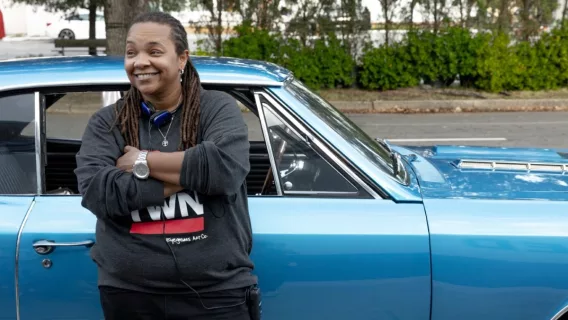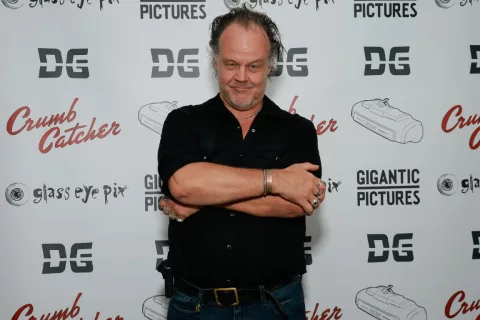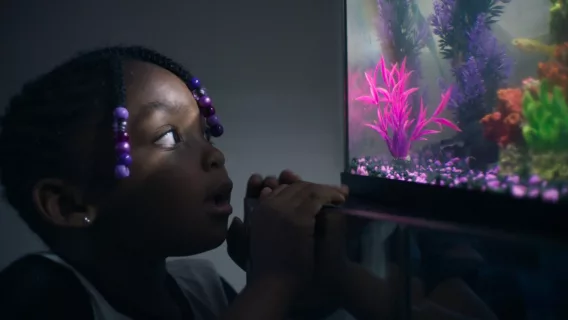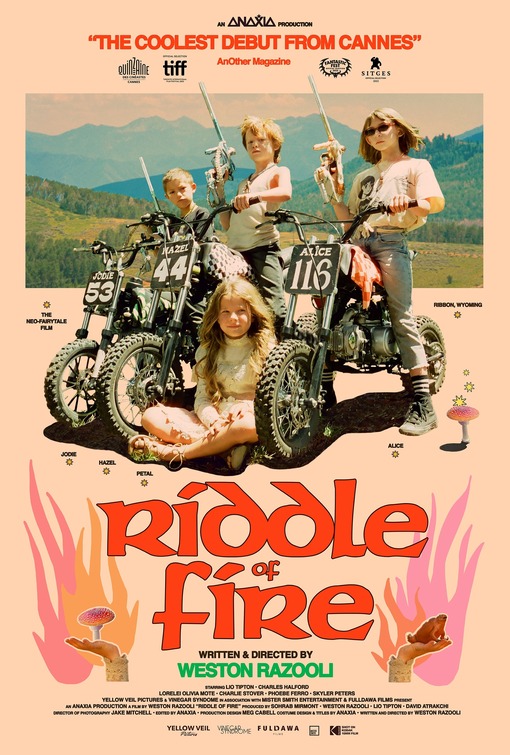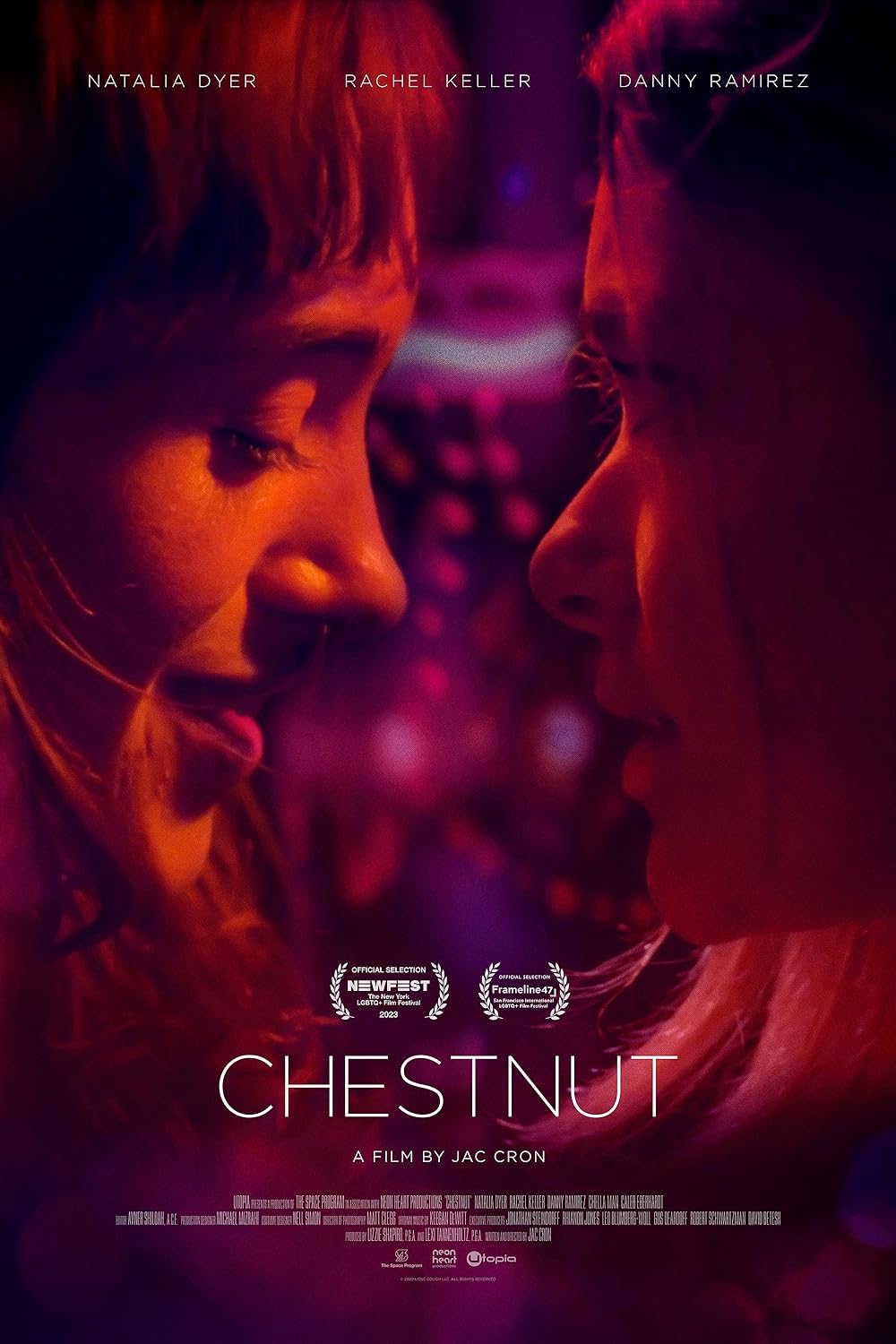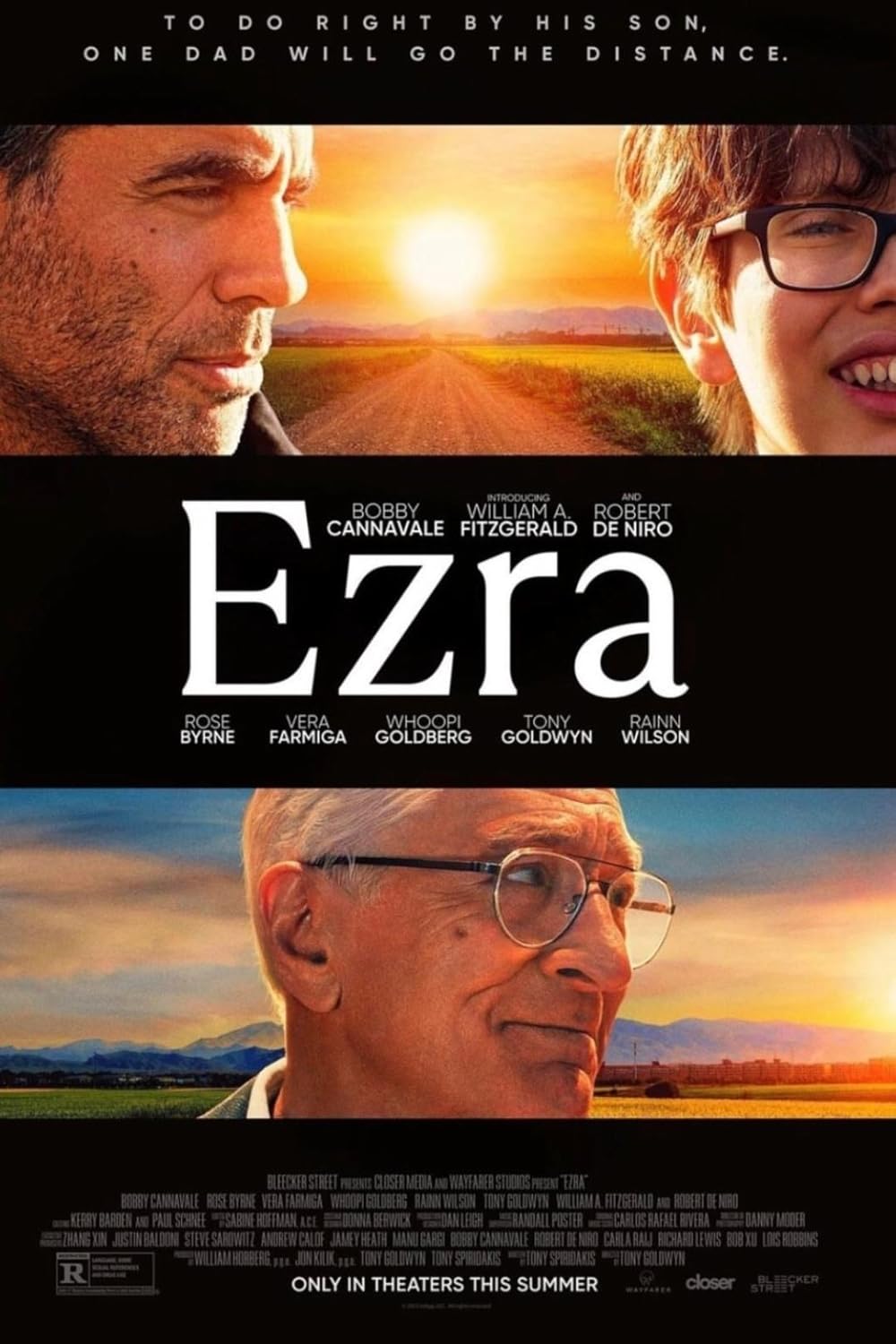It is increasingly rare to find films in love with actors’ faces, and even rarer to find directors who know how to capture the way light contours around lines and eyes to tell the story of the character. Greg Kwedar’s “Sing Sing,” co-written with Clint Bentley, hasn’t forgotten the pleasure of watching a rich performance develop into an emotional release. It’s an empathetic film built on performance, on trusting one’s actors, and trusting the audience to love them in turn.
Set in a maximum security prison, “Sing Sing” follows a group of incarcerated men who are part of Rehabilitation Through the Arts (RTA)—a program that allows them to stage plays. Divine G (Colman Domingo) is the most talented among them, a playwright hoping to finally gain parole. In the meantime, he and fellow actor Mike Mike set about finding new recruits for their next production. The most promising of the candidates is Divine Eye (Clarence Maclin), a dealer who, despite his gruff exterior, has the heart of a poet. They bring him in the fold with other performers like Dap (David Giraudy), Blaze (Jon-Adrian Velazquez), and Dino (Sean “Dino” Johnson) and with theater producer Brent Buell (Paul Raci) to stage an original production of a time-travel comedy set in ancient Egypt called Breakin’ The Mummy’s Code.
While Domingo is always eye-catching, this is also a stacked cast in a film that provides stacked emotions. The ensemble combines Academy Award-nominated actors like Domingo and Raci with RTA alumni like Maclin and Johnson for a potent alchemy of range and realism.
During the Chicago Critics Film Festival, RogerEbert.com spoke with Raci, Maclin, and Johnson in-person about filming in an actual prison and the power of the arts to heal and change.
This interview has been edited and condensed.
How did all of you become attached to the film?
Clarence Maclin: I got attached to the film because the brother, Brent Buell got in touch with me and said he met Greg and Clint. They had an idea about doing a movie about a play we had done. So immediately, my antennas were up and I’m all with it. Because I’m the type of guy, if you put a spotlight on the ground, I’m going to jump in it and do what I do. Once they informed me of what they wanted to do, it was a no-brainer for me. I was on board.
Sean “Dino” Johnson: I’m an RTA alumni member and was on its board. When Greg said, Hey man, you know what we’re doing right? I’m like, Sorta kind. He’s like, You want to be part of this? Sure. This is big for us. RT was all about bringing people together, man.
Paul Raci: I got a call from my management company. What’s funny is that she spent about 20 minutes on the phone talking about this project and how great it was. But there’s not a lot of money.
Oh.
But from the get-go, Greg and Clint, these two young filmmakers, I knew of their work from “Jockey,” and that was enough for me to go: Okay. There was something special going on, even on the phone. I knew I wanted to be involved. And when I got there to actually be in the project, I knew that the feeling was right. The vibe was right. The men were so on. I’m just really grateful at this point to be involved with it.
Paul you’ve got a knack for playing people in instructive, teaching roles. What draws you to them?
PR: My age [Laughs] I’ve had so much experience doing this kind of work as a sign language interpreter in the criminal court system. I’ve been involved in therapy sessions. I’ve been involved in prison interviews. I’ve been involved in all this. So to me, I’ve been doing this for almost 35, 40 years. Roundabout, in and out, somehow I’ve been involved. To get a role with a guy who goes into prison and brings in a program made perfect sense to me.
Clarence, you received a story credit on this film. How did you inject your experiences into it?
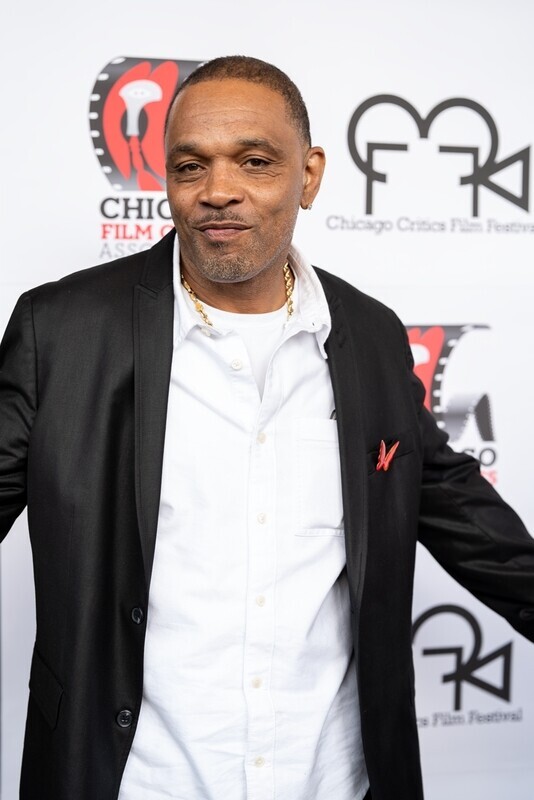
CM: When we got together during Covid, we were doing everything over Zoom. When Colman came on board and we started doing our little rehearsals, that’s when we really got to work getting the kinks out and really got to see where everybody fit in. I understand the language of the prison. So I was there to pretty much clean up the language. However, Greg and Clint had the overall picture. See what I’m saying? The directors and producers generally have an overall picture of everything. So we had to get together and meet in the middle of a lot of things. We tried a lot of things that didn’t work and revamped it. That’s basically how the thing got hammered out. It was a collaborative thing and everybody had an input.
As stage performers, what was it like being in front of the camera, for many of you, for the first time?
PR: From my perspective, I’ve been doing this a long time; when we got down to the business of doing these scenes, I mean, these guys are really actors. I’ve been doing this for a long time. Everybody was on the same level, Colman Domingo included, and were doing some real work. You could just feel it.
And there’s the other guys. You got JJ, and you got Dap. Dap is a good example of a guy who was just always bringing it and being real in the moment. So Greg and Clint got a lot of stuff on film that they didn’t even use. Tons of stuff. These guys were bringing it for real. We were actually in a prison environment. Not in a studio. We were in prison. It was for real. And so maybe that brought some of that realness to it. These guys were in the place where they had spent years. I could feel the gravity of that. I think Colman did, too. So, God, it was like a perfect storm in the perfect place with the perfect directors knowing what they wanted to do.
The camera in this film loves actors. There are some wonderful closeups for these big monologues. What were the conversations around these emotional moments, particularly in this environment?
SDJ: A lot of us have been students of the arts for years, for decades. To transfer it back to the screen, we took classes on blocking, how the blocking changes from theater to film, and other such things. So that was all just second nature. I think what really encouraged us all was creating that same environment we had where it was a collaboration. You know what I mean?
Now I’ve been on some sets, a lot of sets. You don’t often get the opportunity to collaborate. But within this environment, I think Clint and Greg allowed us to find that sense of truth. We would run a scene until we just felt: Yo, that’s it. It’s a wrap. If it wasn’t right, we kind of looked at each other and whispered: We’re going do that one. [Laughs] Another thing is that we got to have some astounding people on set with us. I’m talking about everybody from Colman Domingo and Paul Raci, down to cameramen, down to the set designers, and the people who dressed us. Everybody that was on that set, it seemed like we were all on the same page. Everybody’s just got it.
CM: This is what we’re going to bring to the world. This creative thing that we’re doing right now is more than a movie. That was bigger than the apprehension we had going back in and putting on greens again. I was two cells away from a cell I was actually in when I was in that jail. When I did a scene in a cell by myself, the cell upstairs over me, I was in that cell when I came to this jail. So the apprehension was real. It was something that we could feel. But the purpose was bigger than us.
Was there any conversation between filming this in prison and doing it on an actual soundstage?
PR: That was in their minds from the beginning. Greg and Clint respected the subject matter and these guys who did their time. That respect permeated everything. I could just feel that they were going to let these guys be advisors and tell us what’s real and what’s not real.
With that in mind, what was the day-to-day vibe like on set?
PR: A good time.
SDJ: We were just glad to be together once again. Meeting so many new people, it was just another journey.
CM: Because we were all in prison together. We all got along, we all ate together, we all were basically in the same programs with one another. When I got into Rehabilitation Through the Arts, most of these guys were already in college. I wasn’t in college at the time. However, I’ve always studied. I’ve been a part of Nation of Gods and Earths since 1979, so I was able to keep up with a lot of subject matter. So Mercy College gives out an entry exam and you take this exam and depending on how high you score on the exam, you get into college. So they dared me to go because I’m always in their conversations [Laughs] I take the exam and I score the highest in the room. Now I gotta go to college. [Laughs] Now I’m in college with these guys, and we’re doing plays together. The community that we created was already created when I got here. When I got to the prison, they were already doing everything. When I saw it, and I got to see what it really was—I wanted to be a part of that. It changed my life.

We’ve talked about how the environment influenced your performances, but what about the costumes? There are so many colorful pieces of clothing here. How did costuming factor into your performance?
SDJ: When RTA first started, the administration didn’t give us anything. We basically had to make due with what we had. We couldn’t have weapons, props, none of that. So the backdrops were made out of state sheets. We would take our uniforms, take the sleeves off of them, draw on them, and do all types of stuff. We were literally rolling sheets back and forth for the scenery. And it got to a point where after about seven, eight years, the administration finally brought in and said: Hey, this is something good. I’ve noticed these guys were key lock monsters. Now they don’t even get tickets. They’re staying out of trouble. They’re really enjoying this thing. They started letting all types of furniture builders, using vocational shops, shutting it down, building full-scale sets and everything.
CM: We’re getting military uniforms now.
SDJ: They’re bringing in little fake weapons. Of course, at the end of the evening, they were very strict about how they accounted for everything. It was just amazing to watch that happen in a matter of time and to witness people’s perception of the formerly incarcerated change. The superintendent started coming over to my myself: Hey, Mr. Johnson.
CM: Now, it’s Mr. Maclin! [Laughs] That’s when you realize the real power of art. Because there were officers that used to look down their noses at me, change. They’re asking for my autograph.
PR: Now, all of a sudden they’re star fuckers.
SDJ: Actually, when I found out I was leaving, there was a long line of officers waiting to shake my hand. That blew me away. That made me a believer that I could change other people’s perceptions.
PR: That is the power of theater. It’s seeing yourself.
SJ: For me, it was like almost being drunk because I was an introvert. I was one of those guys who didn’t say more than four words. I used to just sit in the corner, working out, just looking at people. I didn’t say much because every time I did open my mouth, people would take it the wrong way.
CM: Because you’re a big guy and we’re already looking for the wrong thing.
SDJ: Through the arts, I began to develop a vocabulary. I started developing a demeanor, and, at one time, I didn’t smile. Now I smile a lot.
You’ve all been on a journey, from making the film, through its premiere at TIFF, until now. Could you talk about what you’ve taken from this time?
CM: Going through this journey? What it was like for me, man, it was like a reunion in a sense. It’s like us coming back together again to put on another production. When we were in prison, putting on productions, those were the greatest times. Because at that moment, we were not in prison. I’m free. I’ve been to Greece. I’ve been to Egypt. I’ve been all over the world, right from my cell just because I learned how to read a script, to find empathy, compassion, all these types of things inside the human condition. That’s what I look for in the script. I try to find the human, the compassion and the empathy and interpret that to the world. We found all of that in that and we put it into the movie.
SDJ: This journey was refreshing. And I learned so much because I’m a student of the arts. I’m learning something new everyday watching Paul, watching Colman. I think we enjoyed being around each other so much that even when we left the set, we’d go back to the hotel, drink beers, talk, and eat.
PR: I think I was only there for three weeks, something like that. Every day, it was a joy to get up, a joy to see the joy that was happening within this group. The guy I was playing, Brent Buell, was on set every day. The minute that I saw him with the guys, I just grabbed that vibe and knew I was in the right place. I don’t want to say it was life changing because I’ve already been through this experience, as an interpreter doing sign language for a lot of guys who are incarcerated, but it was just life-affirming. I love being an actor and this is just one of the highlights of my life.
